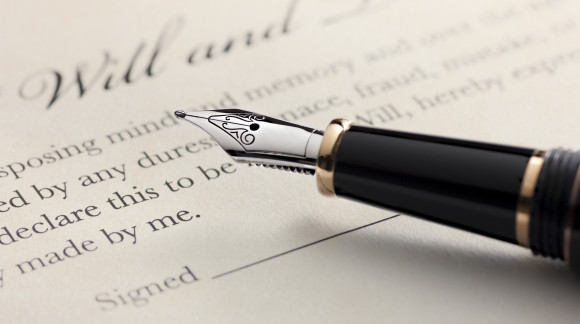Wills 101: What You Need to Know About Drafting a Will

Basic Instruction for Drafting a Will
A will is the standard legal document used in all states to determine how a person’s property is distributed, and to whom it is distributed, following his or her death. However, a will must meet certain requirements under state law in order to be a valid legal document. While these requirements vary somewhat from one state to the next, typically any person over the age of eighteen has the legal right to execute a will. The person also must be of sound mind at the time that he or she executes the will in order for it to be valid, which means that he or she must not have been found to be mentally incompetent in any other legal proceeding.
Validity of a Will
State laws set forth a number of requirements to make wills legally valid. While not all of these standards are required under every state’s laws, many states require the following:
1) The will usually must be in writing.
2) The will must be signed at the end by the person making it (called the “testator”).
3) The will often must be signed by at least one competent witness; some states require two or more witnesses.
4) All signatures should take place in the presence of the testator and the required witness or witnesses.
It is generally recommended that any witness to a will be a disinterested party. In other words, a witness should not be named as an heir in the will or have any interest in the will or the testator’s property. Disinterested witnesses help to avoid the appearance of impropriety or improper influence on the testator by a witness. However, not all states require that a witness be disinterested.
In many states, a court will accept a will as valid and authentic upon its face if it is self-proven. In order to be self-proven, the testators and witnesses must have executed an affidavit in front of a notary public swearing that the will is authentic. While many states do not specifically require that a will be self-proven, it is a good idea to make a will self-proven, which prevents any witnesses to a will from testifying in court as to the will’s authenticity in the future.
Will Provisions
Typically, state law does not require that a testator include any certain provisions in the will or make arrangements in any particular way. However, most experienced estate planning lawyers recommend that testators include the following provisions when executing a will:
1) Appointment of a legal guardian for your minor children, if you have any.
2) Naming of at least one personal representative, or executor, and an alternate personal representative in the event that the first personal representative cannot serve, who is qualified to serve under your state’s law. The requirements for serving as a personal representative vary under state law, but often it is required that a personal representative be a close relative of the testator or a resident of the state in which the will is being probated.
3) A provision giving the personal representative all powers necessary to adequately deal with your property following your death.
4) A specific description of each piece of property that you own, including real estate, valuable personal property, bank accounts, etc., and a statement as to whom should inherit the property.
5) Any funeral and burial arrangements that you wish to be made, as well as providing a source of payment for those expenses.
By following all of the legal requirements for a will under your state’s law, and ensuring that the important provisions listed above are contained in your will, you can help ensure a smoother, more stress-free disposition of your property for your family following your death.
